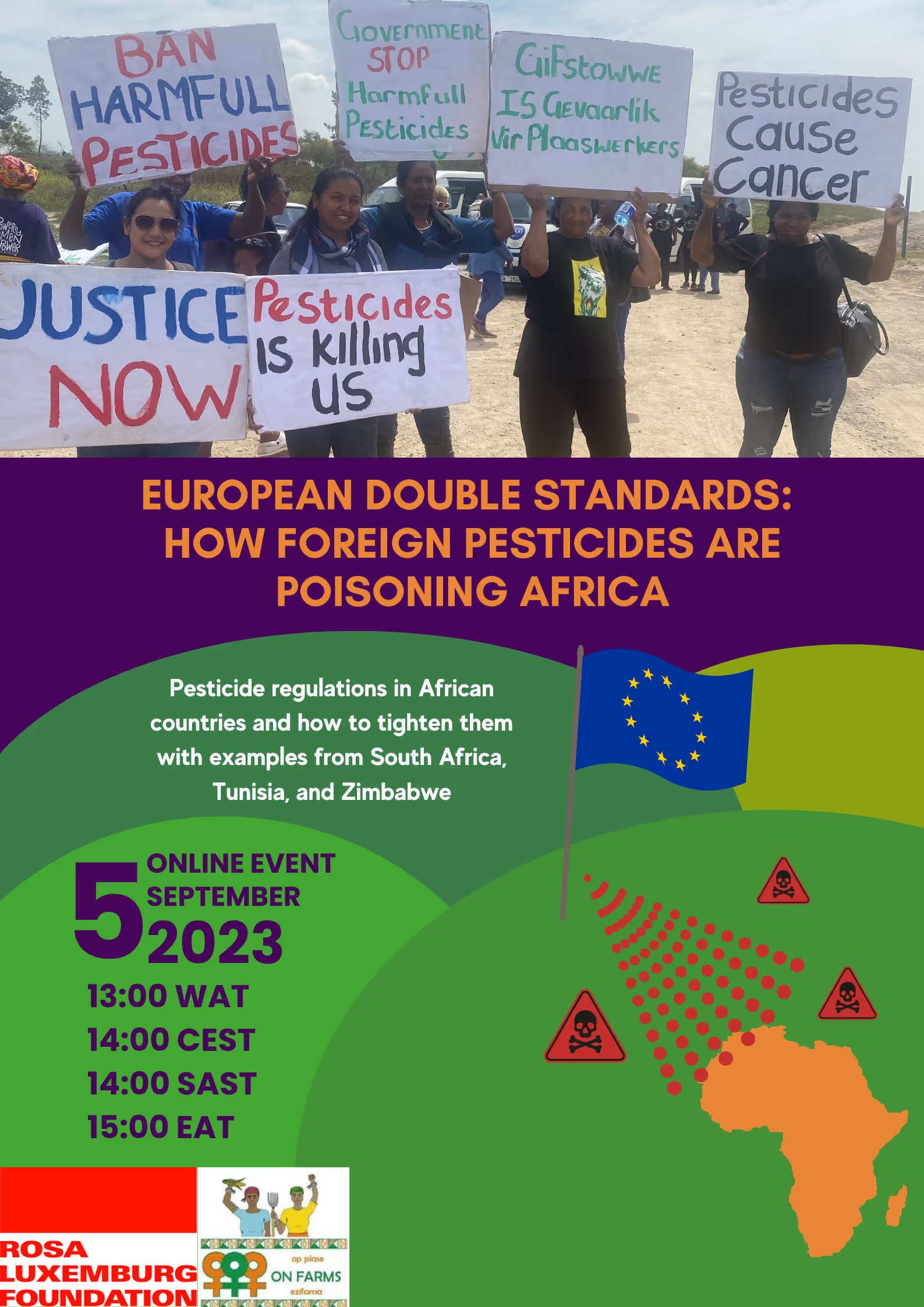
EUROPEAN DOUBLE STANDARDS: HOW FOREIGN PESTICIDES ARE POISONING AFRICA
Pesticide regulations in African countries and how to tighten them with examples from South Africa, Tunisia and Zimbabwe.
By
Online event - registration required here.
Most African countries have experienced increasing agricultural intensification, which has been accompanied by a growing use of pesticides. The Food and Agriculture Organization of the United Nations (FAO)has estimated that pesticide use in 46 sub-Saharan Africa increased by at least 1.5 times between 2006 and 2019. European companies like Bayer, Syngenta and BASF produce and export pesticides that contain active ingredients that are banned in the European Union because of their adverse impacts on human health and the environment. It is thus not a coincidence that the largest share of the 385 million people who experience pesticide poisoning every year, live in the global South, of which, a significant proportion are farm workers and their communities who are exposed. What national and international regulations and protocols are African countries party to? To what extent are African countries compliant with these regulations? How can we use these regulations to campaign for an end to double standards in the international trade with pesticides? How can we campaign as African civil society for an end to the double standards?
When: Tuesday,5 September 2023, 13:00 (WAT), 14:00 (CEST and SAST), 15:00 (EAT)
Speakers:
- Debbie Muir, UnPoison, South Africa
- Dina Ndeleni, Farmwoman activist, South Africa
- Austin Muswere, GAPWUZ, Zimbabwe
- Semia Gharbi, Association d'Education Environnementalepour les Futures Générations (AEEFG), Tunisia
Moderators:
- Colette Solomon, Women on Farms Project, South Africa
- Jan Urhahn, Rosa-Luxemburg-Stiftung Southern Africa
The online event will be held in English, French and Portuguese with simultaneous interpretation. The event is jointly organized by Women on Farms Project (WFP) and the Rosa-Luxemburg-Stiftung Southern Africa.



.png)

